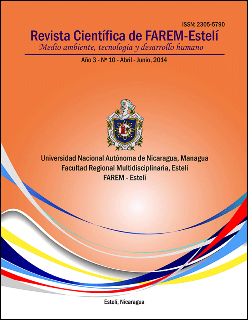Power and Politics in the Medieval Absolutism of the Renaissance
DOI:
https://doi.org/10.5377/farem.v0i10.1613Keywords:
Power, politics, absolutism, state, renaissanceAbstract
Absolutism (XVI - XVIII centuries) marks the start of the modern era because it lays the philosophical and theoretical bases that refuse the medieval feudalism and gave way to the absolutist state, where the king had absolute power. Renaissance arises in this period; it represents a broad cultural movement where significant changes in the arts, sciences, politics, philosophy and religion take place. The central focus during the Renaissance is the human being as the center of Western thinking and medieval humanism is developed, which combines rationalism and naturalism. This article highlights the main contributions of: Niccolo Machiavelli, Jean Bodin, Thomas Hobbes, John Locke, Desiderius Erasmus, Thomas More and three important scholars of the French Enlightenment (XVIII) Montesquieu, Voltaire and Rousseau. The methodological basis of this article is bibliographic and documentary research online.
DOI: http://dx.doi.org/10.5377/farem.v0i10.1613
Revista Científica de FAREM-Estelí No.10 2014: 36-48
Downloads
4810
Downloads
Published
How to Cite
Issue
Section
License
© Revista Científica de FAREM-Estelí

